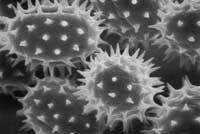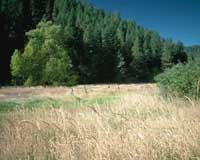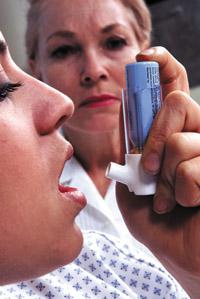Allergies: spring arrives
2000/03/12 Kortabarria Olabarria, Beñardo - Elhuyar Zientzia

According to experts, allergies are divided into four groups: those produced by the airways, those produced by food or medicines, those derived from reactions with the cells of the body and those that can occur in the skin by contact.
The most striking are allergies that occur during the spring, especially by pollen effect. The symptoms are evident: itching in the nose, tears of crying, sneezing, especially in the morning, conjunctivitis, cough, feeling of lack of oxygen, etc. For allergy to occur, there needs to be a sufficient concentration of pollen in the air, according to experts, above 10 grams per cubic meter.
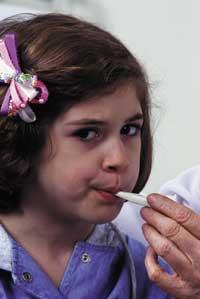
In addition to pollen, mites found in homes cause numerous allergies. Mites are microscopic insects, fed by human scales, who like carpets and curtains. Mites are the ones that cause the most allergies on the coast. One of the most serious consequences of allergies is asthma. It is estimated that 3% of the population suffers asthma, of which 65% are the result of allergies. Children have the most, three times more than adults.
Most drug allergies have more frequent symptoms of hives, asthma, and eczema. In severe cases, however, there may be sudden drops of tension when drugs act on the skin, airways, digestive tract, or nervous system. Painkillers and antibiotics are the ones that cause the most allergies in medicines. Like medicines, foods, especially fruits, milk, eggs, and fish, are able to produce allergy.
Beware of pollen
Apart from this type of allergies, in general and summed up, seasonal, then you can read the spring allergies. The most fertile period of pollination is between March and July, so in spring pollen allergies predominate. When the pollen concentration is high, this pollen penetrates the airways; it sometimes reacts with the imnumoglobulin antibody of the human body and the mucous membrane becomes inflamed. As a result, the above mentioned would come: sneezing, mucus, tears of tears…. According to available data, between 5% and 10% of the total population must suffer pollen allergy.
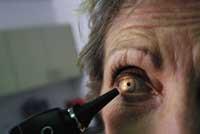
Alisos, birches, poplars, oaks, elms and all kinds of bushes are the ones that release the most pollen. Windy days are the most annoying for allergy sufferers, as pollen spreads everywhere, while rain drags pollen to the ground. For allergic pollen diagnosis, it is ideal to perform skin tests that are reliable, fast and not expensive. It allows you to know the type of pollen that allergy refers to.
Avoiding the influence of pollen is usually not easy, as it is easily dispersed in spring. However, experts make general recommendations. Here are:
- Avoid access to the mountain or sports areas. If there is no choice but to go, protect your eyes with glasses.
- Do not go out on the street when pollen concentration is high.
- Do not stay in closed places. Keep the windows of the house closed, especially when the sun sounds at ease, and open them towards dusk. Before sleeping, close the windows of the room, as when opening the day the pollen concentration is higher.
- Do not approach places where there may be irritants – smoke, gasoline, atomizers…
- If you have air conditioning at home, use it. Air conditioning facilities have filters that prevent pollen from entering.
- Clean the nostrils with physiological serum.
Apart from these general recommendations, they are also offered especially for motorists. According to the studies carried out, if the car is disturbed at 90 kilometers per hour, the car runs about 25 meters without control. Therefore, they also offer special tips for motorists:
- Do not drive with open windows.
- Keep the inside of the car clean, as dust can cause allergic reactions.
- Wear sunglasses. This prevents pollen from entering the eyes.
- You can place cotton plugs on the nose. If you take antihistamines, do not drive because they give you sleep. The first few days of treatment drowsiness is usually greater.
- If you are taking antihistamines, do not mix them with alcohol.
- During the trip wash often the nose and eyes with water. According to experts, the effect of allergy decreases.
Published in 7

Gai honi buruzko eduki gehiago
Elhuyarrek garatutako teknologia



